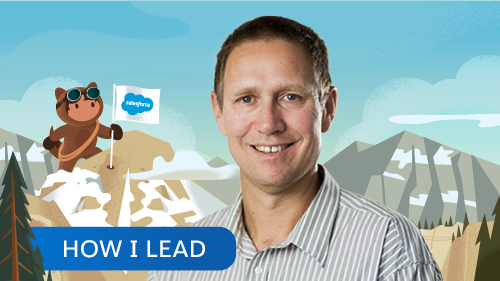We’ve all been making our way through the unexpected and unfamiliar for most of the year now, and those in leadership roles have had the added responsibility of bringing their teams through this experience as well.
Few are as familiar with leading through the unfamiliar and unexpected as Dr Richard Harris. The Australian anaesthetist landed in Thailand in 2018 as part of an Australian Government assistance program after 12 boys and their soccer coach became trapped 3km deep in a cave, and a former Thai Navy SEAL died attempting a rescue.
There, Harry – as the 2019 Australian of the Year prefers to be called – was central to the successful rescue of all 12 boys and their coach.
The inspiring story of determination, collaboration and leadership is so relevant to 2020 – showcasing and revealing how courageous individuals with unique expertise, aligned to the same objective, can solve great challenges.
Here, Harry shares what he learnt in the Thai cave.
The idea had been floated previously – sedating the boys and bringing them out – but I’d dismissed it out of hand as too risky.
When we landed in Thailand though as part of the Australian Government’s Medical Assistance Program (AUSMAT), it was clear that drastic options needed to be on the table. The boys and their coach had been trapped for days without food and clean water.
We decided to sedate the boys, but I could insist at least on 24 hours to prepare and plan.
In that time, I dived the length of the cave myself – I needed to make sure I was comfortable to make the dive – and met the boys. They were incredibly brave. I planned the sedation method – an intramuscular injection – and instructed the rest of the dive team on how to top up the drug about every 45 minutes of the journey out of the cave.
Those divers showed great courage. I feared for the boys’ lives and found it difficult to hand them over, but the British dive team took on great responsibility to care for unconscious kids underwater and to administer a dangerous drug with no experience in difficult circumstances.
1. Courageous leadership is choosing the best option
I don’t think putting my hand up to rescue those boys was heroic. I was doing two things that I know well and I enjoy — cave diving and anaesthesia. Courage is doing something that frightens you. Neither of those things frightened me particularly. The decision to sedate the boys though — that frightened me. I’m proud that I found the courage to make that hard decision.
Sometimes courageous leadership means executing the best option out of a list of less-than-satisfactory options. Courageous leaders also build trust with their teams that they’ll step up in the face of challenges, make a plan in a timely manner and proceed with it.
2. Leaders know the power of teamwork
Finding the right balance between teamwork and the courageous individuals with particular expertise who step up to bring this to the table can be powerful, especially when everyone is aligned to and laser-focused on the objectives. Misalignment creates distractions, diverts focus and causes conflict.
3. Deciding and acting hinges on trust
Deciding to do nothing can be more damaging than making a decision to act, even if you’re not fully convinced acting will drive the right outcome. Deciding to act is easier when you have a culture of trust. Transparency and frequent communication when making decisions can be a powerful engine for building trust.
4. Allow experts to rise to the challenge
Individuals with unique expertise are rising to and solving challenges, and leaders and teams should lean on these individuals.
In this complex rescue, middle-aged nerds from all over the world with a strange passion for an obscure sport were able to execute a mission with complete success where the highest-trained military personnel were unable to.
What spoke to me about life from this experience is to be a generalist and an enthusiast — you never quite know where it’s going to lead.
Harry now works closely with Operation Flinders, which supports at-risk youth in building resilience to tackle challenges, and we have donated to support this work. If you can join us in supporting Operation Flinders, please donate here.

Catch up on more leadership insights and advice with these favourites from the How I Lead series:



















